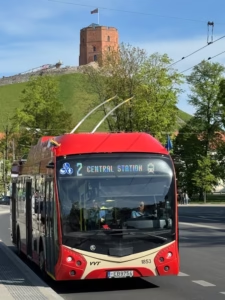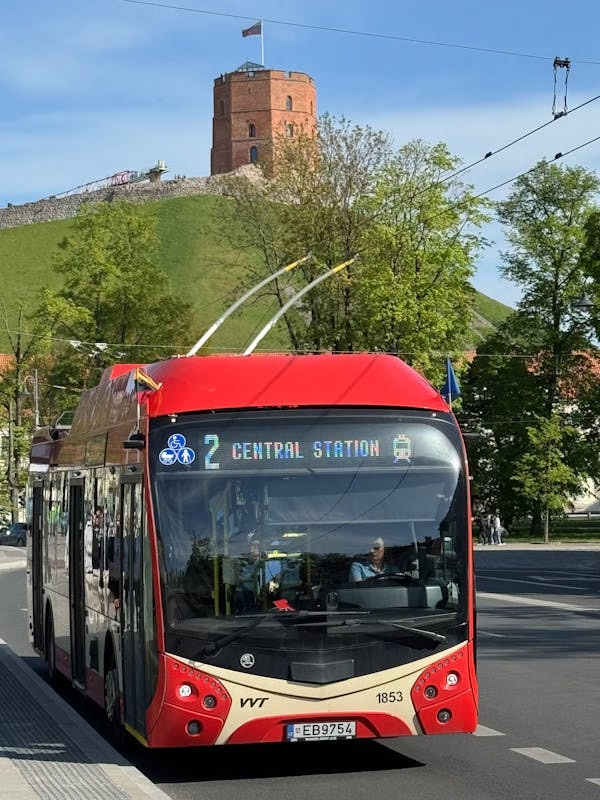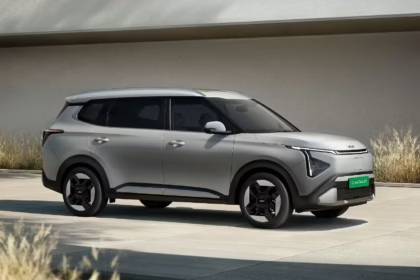Introduction
India’s electric vehicle (EV) movement has gained impressive momentum in the last couple of years, driven by the twin pressures of reducing fossil fuel dependence and mitigating urban air pollution. As urban agglomerations struggle to cope with increased emissions and clogged roads, electric mobility has emerged as a prime solution, with the electric bus playing a central role in revolutionizing public transport.
Electric buses offer a cleaner, quieter, and more energy-efficient alternative to conventional diesel-powered buses. The latest electric bus price is available in the Indian market. Conventional diesel-burning buses emit high levels of air pollution, particularly in urban regions where car exhaust is one of the primary causes of smog and respiratory diseases.
India, as of 2025, includes the range of electric bus price models available on the market, the top manufacturers leading this transition, and government schemes promoting the use of e-buses. As a fleet operator, policymaker, or just a person interested in green transport, this detailed analysis will help you gain crucial insights into the future of electric buses in India.

Electric Bus Market Trends in India
The Indian electric bus market experienced significant growth in 2025. One of the developed, highly in-demand electric buses by the State Transport Undertakings (STUs). Cities such as Delhi, Mumbai, Bangalore, and Hyderabad are taking the lead, with major deployments of electric buses under central and state plans. These government-sponsored programs have not only increased the number of e-buses on Indian roads but also contributed to establishing public confidence in electric mobility. The trend is not confined to the public transport sector—school bus services, tourist operators, and private fleet operators are also considering electric buses as a cost-effective and economically viable alternative to diesel buses.
Major players, including Tata Motors, Ashok Leyland (through Switch Mobility), JBM Auto, and Olectra Greentech (in a joint venture with BYD), have become market leaders by offering a range of electric buses tailored to both intra-city and inter-city routes.
Price of Electric Bus in India
In 2025, the cost of an electric bus in India will depend heavily on its specifications, purpose of use, and the level of technological integration. As an increasing number of players enter the market and increase production volumes, the price of electric buses has become increasingly competitive against conventional diesel buses, considering operational savings and government subsidies.
- Low-End Models (Rs. 80 lakh – Rs. 1.2 crore): These are primarily 9 to 12-meter intra-city buses for short urban commutes. They have minimal features, a moderate battery range of 100–150 km per charge, and are widely bought by transport corporations and municipalities for feeder services or last-mile connectivity.
- Mid-Range Models (Rs. 1.2 crore – Rs. 1.8 crore):These buses typically feature improved build quality, a longer range (up to 200–250 km), and enhanced features such as regenerative braking, air conditioning, and real-time GPS tracking. These are suitable for longer urban routes and are gaining popularity in Tier 1 and Tier 2 cities.
- Premium / Intercity Models (Rs. 2 crore and above): The luxury electric bus is designed for highway and intercity routes, featuring a greater battery capacity (over 300 km per charge), more luxurious seating, entertainment systems, and rapid charging capabilities. Luxury electric bus is primarily operated by private fleet companies or used in long-distance public transportation services.
- Charging Technology (Fast vs. Slow Charging): Buses equipped with rapid-charging technology (DC charging) are more expensive due to the sophisticated onboard electronics and higher infrastructure costs associated with this technology. They do, however, deliver a very high level of fleet efficiency, particularly in urban areas where operations are frequent.
- Local Manufacturing vs Imports: Locally assembled or produced buses under the “Make in India” program are eligible for reduced import tariffs and, in some cases, government subsidies. Imported units or units with foreign components have a higher cost structure due to taxes and shipping costs.
Leading Electric Bus Models in 2025
India’s electric bus scene is marked by new-generation EV experts introducing buses to the market that strike a balance between performance, passenger comfort, and fuel efficiency, underscoring the electric vehicle (EV) landscape in India. Hereafter follows a close examination of India’s top electric bus models for 2025:
Tata Ultra EV
- Tata Motors remains a market leader in India’s electric mobility space, and the Tata Ultra EV is one of its flagship products in the range of electric buses.
- Price: Rs. 1.2 crore to Rs. 1.6 crore (depending on configuration and range)
- Specifications: 12-meter low-floor bus, lithium-ion battery with fast-charging capacity
- Range: Up to 200–250 km per charge
- Key Features: Regenerative braking, sophisticated telematics, real-time fleet tracking, and a light aluminum body that optimizes efficiency.
JBM ECO LIFE
- The JBM ECOLIFE electric bus is conceived on the premise of smart mobility and sustainability.
- Price: Rs. 1.4 crore to Rs. 1.9 crore
- Battery & Range: Lithium-ion battery with a maximum capacity of 300 kWh, offering a range of 200–250 km on a single charge
- Smart Features: Real-time diagnostics, CCTV monitoring, automatic fare collection system, and air purification for healthier cabin air.
Ashok Leyland Electric Bus (Switch Mobility)
- Ashok Leyland, via its EV subsidiary Switch Mobility, provides an expanding range of electric buses for both local and global markets.
- Price: Rs. 1.3 crore to Rs 2 crore
- Variants: 9-meter and 12-meter buses with various seating and door configurations
- Range: 180–300 km based on model and battery pack
- Highlights: The Switch EiV range is fitted with modular battery options, energy-efficient motors, and intelligent connectivity features.
Olectra-BYD Electric Bus
- Electra Greentech, in collaboration with China’s EV powerhouse BYD, is among the country’s largest electric bus suppliers.
- Price: Rs. 1.5 crore to Rs. 2.2 crore based on size and variant
- Models: 7-meter, 9-meter, and 12-meter variants
- Range: 200–300 km (city) and up to 400 km (intercity variants)
- Key Features: Enhanced battery thermal management, AI-driven fleet analytics, and ultra-rapid charging capability
VE Commercial Vehicles (Volvo-Eicher JV)
- VE Commercial Vehicles, the joint venture of Volvo Group and Eicher Motors, ventured into the electric space, leveraging robust engineering backing from Volvo’s worldwide expertise.
- Price: Rs. 1.8 crore to Rs. 2.5 crore
- Range: 300–350 km per charge
- Features: Next-generation driver assistance systems (ADAS), smart battery life management, comfortable suspension, and ergonomically designed interiors.
- Government Schemes and Subsidies (2025)
FAME India Scheme (Phase II & Updates in 2025)
The Faster Adoption and Manufacturing of EVs in India (FAME) program, initiated by the Ministry of Heavy Industries, remains the backbone of India’s electric vehicle journey. FAME Phase II has been extended and revamped with more funding and new guidelines in 2025.
- Subsidies of up to Rs. 50 lakh for each electric bus, depending on battery capacity and performance parameters.
- Demand aggregation—procurement in bulk via government organizations such as CESL (Convergence Energy Services Limited).
- Financial assistance for charging infrastructure development, including depots and fast-charging points.
- State Transport Undertakings (STUs), municipal corporations, and government-approved public service entities.
State-Level EV Policies
- Delhi: Provides incentives on electric commercial vehicles, road tax and registration fee exemption, and a special e-bus fleet expansion plan under the Delhi EV Policy.
- Maharashtra: Aim to promote 25% of public transport as electric by 2025 through capital subsidies and land provision for charging depots.
- Tamil Nadu: Luring EV manufacturers with incentives linked to production and assisting STUs with concessional loans for e-bus purchases.
- Karnataka: One of the first states to adopt an electric vehicle (EV) policy, Karnataka offers tariff benefits for charging and has a target to electrify 50% of its public bus fleet by 2030.
Public-Private Partnerships & Tenders
To expedite deployment, the government has increasingly relied on public-private partnerships (PPPs) and tender-based procurement mechanisms. Under this model, private firms can operate and maintain electric buses while the government provides viability gap funding or pays per kilometer (gross cost model).
- The CESL Grand Challenge has led to tenders for large orders of e-buses in cities such as Delhi, Bangalore, and Hyderabad.
- Some state transport companies (such as BEST in Mumbai and BMTC in Bengaluru) have floated tenders to induct thousands of electric buses under long-term operator contracts.
- Private fleet operators are now entitled to low-interest finance and government subsidies while collaborating with public entities.
Incentives for Private Operators:
- Tolls and tax exemptions
- Route allocation preference
- Land and infrastructure support for charging and maintenance facilities
- Viability gap funding to subsidize increased upfront costs
Charging Infrastructure Developments
Fast-Charging
The chargers, frequently based on DC fast-charging technology, enable buses to be recharged within minutes compared to conventional AC chargers—a critical feature for high-frequency public transport applications.
A majority of state transport undertakings (STUs) currently operate electric bus depots with several fast-charging facilities, typically complemented by charging arms or pantograph systems to automate the process.
Intelligent charging management systems are utilized for scheduling opportunities and overnight charging, thereby maximizing power utilization and minimizing operational downtime.
Battery Swapping Pilots and Innovations
Although fixed battery charging remains dominant, battery swapping has become a promising solution for specific use cases, particularly where there is limited grid capacity or where rapid turnaround is required.
- Pilot Projects:
Selected cities such as Ahmedabad, Chennai, and Pune have launched pilot projects in which electric buses are equipped with modular batteries that can be exchanged within less than 10 minutes at automated facilities.
These pilots are being conducted in smaller buses and on feeder routes to assess their long-term viability and cost-effectiveness.
- Technological Innovations:
Businesses are testing standardized battery packs, robotic swap arms, and AI-based battery health diagnostics to enhance safety and minimize downtime.
Battery-as-a-service (BaaS) models are also gaining popularity, allowing operators to lease batteries independently and thereby minimize initial costs.
- DISCOMs and Private Energy Companies
India’s DISCOMs, as well as private energy companies, are promoting EV infrastructure, particularly in ensuring electricity is available, dependable, and affordable at bus terminals and charging stations.
- Grid Upgrades:
DISCOMs are investing in transformer upgrades, load balancing, and smart meters to manage the additional power requirements of electric bus fleets, particularly in metropolitan cities.
Time-of-day tariffs and special EV-friendly tariffs are being introduced to incentivize off-peak charging and reduce peak-hour grid loads.
- Public-Private Collaborations:
Private utility majors, such as Tata Power, ReNew Power, and Fortum India, are entering into partnerships with transportation departments to develop and operate charging stations.
These alliances are typically accompanied by solar integration and energy storage systems, utilizing battery energy storage systems (BESS) to enhance energy efficiency and reduce the carbon footprint.
Challenges and Opportunities
While there is strong momentum in adopting electric buses in India, the ride is not going to be smooth. Yet, these challenges also bring bespoke opportunities for innovation, investment, and long-term value creation on the eve of 2025.
Battery Technology and Sourcing
While India has made progress in EV battery assembly, most cell components are still imported, especially from China and South Korea.
- Limited domestic cell manufacturing
- Raw material dependency (e.g., lithium, cobalt)
- Battery disposal and recycling infrastructure
The silver lining is government schemes like the PLI (Production Linked Incentive) scheme for the manufacturing of Advanced Chemistry Cells. (ACC), which should give a leg-up to local battery manufacturers. Furthermore, Indian companies are investing in solid-state batteries, LFP technology, and battery recycling to enhance supply chain resiliency.
Urban Planning and Charging Infrastructure
Land for depots and charging stations is scarce in urban agglomerations.
Most STUs are subject to grid capacity limitations, particularly for fast-charging installations. Non-standardization of charging connectors and protocols causes incompatibility problems.
These challenges require greater coordination among urban planners, utilities, and transportation authorities. Cities need to consolidate their electric vehicle (EV) infrastructure planning with smart city policies, Transit-Oriented Development (TOD), and public-private partnerships to achieve a comprehensive approach.
Scope for ‘Make in India’ & Export Potential
India is a global hub for electric bus manufacturing. With its abundant domestic market, skilled workforce, and favorable policies, the Indian industry is already producing world-class vehicles for both domestic and global markets.
- Doubling exports to Southeast Asia, Africa, and the Middle East, where similar transport and climate conditions exist.
- Localizing vital components like powertrains, control systems, and chassis to cut dependency and generate jobs.
- Strengthening R&D in partnership with academic and foreign partners to advance innovation in battery technology, lightweight materials, and energy efficiency.
Conclusion
As of 2025, electric buses in India are no longer a niche but a rapidly emerging segment of the public transportation network. With their prices varying from ₹. 80 lakh for low-end city buses to over Rs. 2 crore for high-end intercity models, today’s fleet operators have a variety of electric buses available to meet different operational requirements. Leading models such as the Tata Ultra EV, Switch Mobility’s EiV range, JBM ECOLIFE, and Olectra-BYD buses are setting standards in range, comfort, and intelligent features. New players and international partnerships, such as those with VE Commercial Vehicles, are also contributing to the market.
All this has also driven the development of necessary infrastructure, including fast-charging stations and pilot projects in battery swapping and energy management. In the future, the prospects for electric buses in India are extremely bright. As battery technology advances, charging becomes quicker and easier, and production scales up, the cost of ownership is likely to decrease even further.
FAQs
- What is the cost range of an electric bus in India in 2025?
Electric buses cost between Rs. 80 lakh and more than Rs. 2 crore based on model and specifications.
- Who are the top electric bus companies that are market leaders in India?
Tata Motors, Switch Mobility, Olectra-BYD, JBM Auto, and VE Commercial Vehicles are leading the market.
- What is the subsidy given under FAME II for electric buses?
Subsidy of up to Rs. 50 lakh per bus is offered under FAME II, which depends on specifications.
- Are government incentives available to private operators?
Yes, private fleet operators are entitled to subsidies and tender-based deals.
- How far would an electric bus run on a full charge?
A range of 180–300 km is provided by most electric buses, with some intercity models going up to 400 km.
- Are intercity journeys suitable for electric buses?
Yes, more range and comfort-enhanced premium electric buses are employed for intercity journeys.
- What is the time taken to charge an electric bus?
With quick charging, buses take 1.5–3 hours to charge; overnight charging will take 6–8 hours.
- Is battery swapping an option for electric buses?
Battery swapping is being tested in some cities, but it has not yet been installed extensively for large buses.
- Which states have the most favorable EV policies for buses?
Delhi, Maharashtra, Karnataka, and Tamil Nadu have good EV incentives and infrastructure support.
- What is the future scenario of electric buses in India?
Growth is expected to be rapid, with mass adoption being driven by declining costs, improved technology, and policy push.





